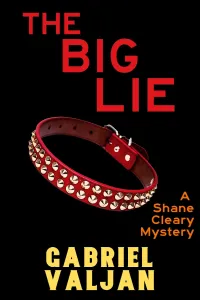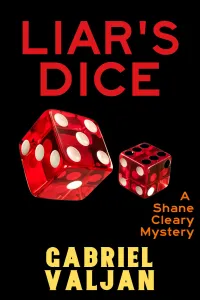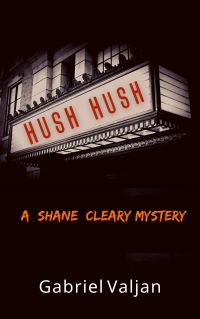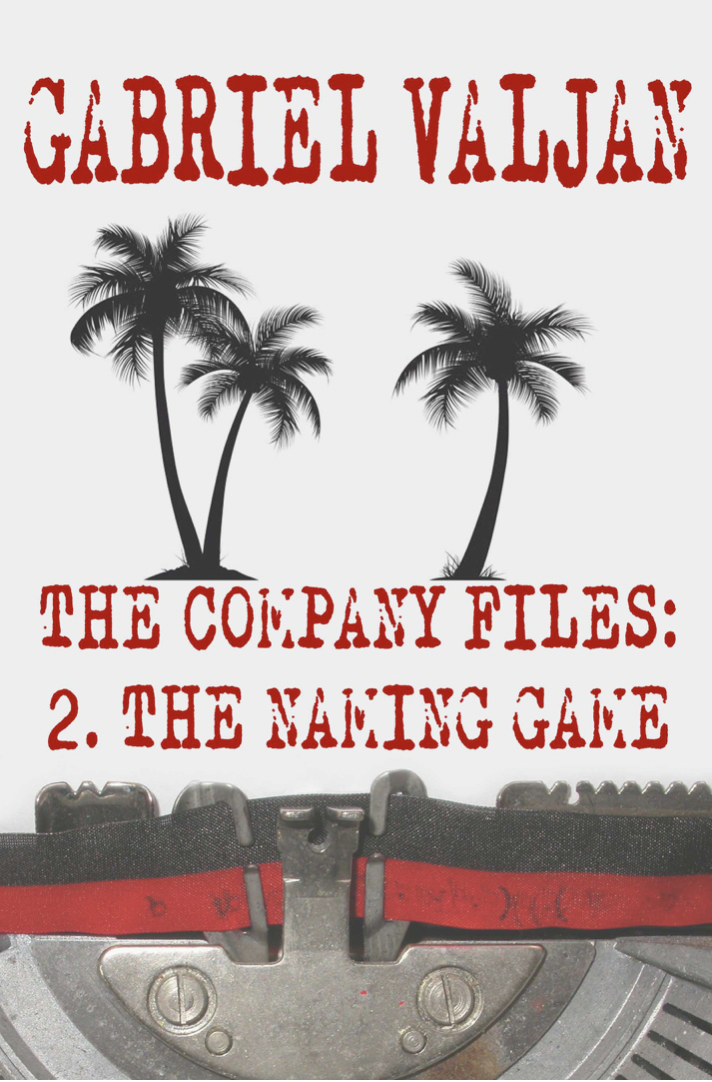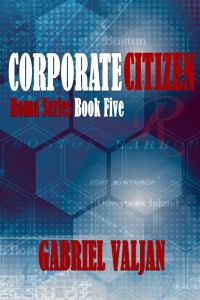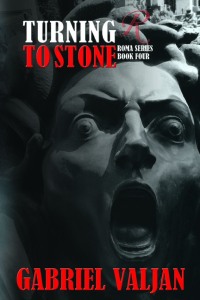It’s an annoying phrase. It really is a bad turn of words that would have you believe the day-to-day living back then was simple, pure, less complicated than today. Anybody with an iota of lived experience would tell you anything that is purported to be simple isn’t; anything pure, won’t be, and nothing is less than complicated, except dying.
That brings us to the point: dying. This story is about death. Plain and not so simple, complicated and not complicated.
 Let’s knock the nostalgia stuff out of the way: a murder story needs a place. Town was a place to purchase a Pullman ticket. There was usually one bank, one general foods store, and every respectable town had at least one bar or ‘Social Club.’ In town roads were likely not paved and you could pay a bill with a coin. Couples in town could go somewhere reputable for a bite to eat. A girl was a lady and a woman was a woman and both could teach you a thing or two. A kiss was a kiss and nobody talked about what they did in bedrooms that didn’t involve sleeping. In town murder is a cozy affair, about as close and comfortable as kissing your sister, because everybody knew everybody. In town knowing someone meant you knew a name.
Let’s knock the nostalgia stuff out of the way: a murder story needs a place. Town was a place to purchase a Pullman ticket. There was usually one bank, one general foods store, and every respectable town had at least one bar or ‘Social Club.’ In town roads were likely not paved and you could pay a bill with a coin. Couples in town could go somewhere reputable for a bite to eat. A girl was a lady and a woman was a woman and both could teach you a thing or two. A kiss was a kiss and nobody talked about what they did in bedrooms that didn’t involve sleeping. In town murder is a cozy affair, about as close and comfortable as kissing your sister, because everybody knew everybody. In town knowing someone meant you knew a name.
Our murder takes place in the city. The city is an altogether different species of living. Nobody will stop you if you want to drink your gin & tonic at 10am. A night can start at 2am and the day can begin at 2pm. There are restaurants, diners, greasy spoons, pubs, and on-the-fly food-stands for your daily eats. There is more than one newspaper with the same story twisted different ways. More than one road gets you in and more than one can get you out. Nobody knows anybody because they’re usually from somewhere else, working to get by, and living where they can, often with their own kind.
See, some things don’t change about murder. A man has to die sometime, and if left alone he’ll die of something. One day. Murder just hurries it along. Women die every day though. They can pick up a magazine and look at the pictures. They die. They can go out to see the pictures, look up at the screen and they die. Beauty kills.
The why a man dies is an entirely philosophical matter. We’re not talking about the self-ordained kind of death and not the one that the woman upstairs writes on the back of the slip when you’re born. I know God is a woman. It explains the humor in this world, like why flamingos have their kneecaps on backwards. As I was saying about a man and his dying…he could die because he has a cause he believes in, but that really is a lie. What that really means is that a man is willing to put himself in a situation again and again that improves the probability of it happening. Call it possibility and mathematicians will call it probability. Others may call it suicide, and some may call it sacrifice. Dead is dead. Murder is a little more precise than that.
Dying for love? Men may not die for love but they’ll kill for it. Let’s skip this one for now.
In my city the tough guys are the ones that can afford manicures and the deadly ones get themselves pedicures. In this story the murder is over the most obvious cause – sex. There’s your motive.
In this murder there are people: there is a lady, a mobbed-up mick cop, a Jew, a creative-type brother of the lady just mentioned, and a dead WASP. Oh, and there’s me.
 I forgot. Back in the day we talked that way. We didn’t say Ms., Irish or Italian-American. In my city the Irish were considered equal if not below coloreds. Life was so bad for the Irish that there were signs hung up in the windows everywhere telling them they ‘Need Not Apply Here. Irish are Unwelcome’ but the mean joke was that the Irish had to see the signs but the coloreds were the ones who could read them. No lie. It took a lot more blood and cracked heads than pulling a pint of Guinness to see an Irishman walking the beat.
I forgot. Back in the day we talked that way. We didn’t say Ms., Irish or Italian-American. In my city the Irish were considered equal if not below coloreds. Life was so bad for the Irish that there were signs hung up in the windows everywhere telling them they ‘Need Not Apply Here. Irish are Unwelcome’ but the mean joke was that the Irish had to see the signs but the coloreds were the ones who could read them. No lie. It took a lot more blood and cracked heads than pulling a pint of Guinness to see an Irishman walking the beat.
Coloreds ran the numbers for the Jews or Italians. Once the Italians either killed off the Jews or the Jews went white-collar and left some version of Shylock to run the neighborhood street corner to feed the anti-Semites there was the rest of us fighting over our daily bread. Nobody wants to talk about these things. Each group had their quarter of the city. The Italians ran their neighborhood like their opera, with a fear of sex, respect for the priest, and every now and then, they put out for display some schlep face down in his bowl of pasta, because he rolled out too much dough that belonged to someone else.
Me? I grew up on the West End with a mongrel mix of Irish, Italian, and some coloreds. Us kids feared the old ladies because every one of them was our Mom and every one of them held authority like the law – more so than the beat cops. Lottie, the colored lady on our block, for example, was one such lady and us kids never called her a shine or a nigger or anything vulgar like that, because if we did there was a gauntlet of apron strings to fear more than Jesus. Today the West End is a place for some nice condos with a hospital facing the river.
Let’s get back to the murder. Oh, and one more thing you need to understand about my city. It’s an old city. The rich folks had their mansions all right. The one thing that separated the rich from the poor back then was a zip code. Wealth lived on the top of the hill and poverty at the bottom. Remember that because it is important. Some things never change.
There was Constance but we called her Connie. Sully was the cop. He retired last I heard. There was Ray. He ended up in San Francisco where walking the hills can give you a heart attack. Lest we forget, there is Charles Davenport III. And then there is me.
Always start with the girl. Constance was a constellation in her own right here on earth. She was a genuine Harlow blonde uptown and downtown, half-class and half-trash if there was a glass of champagne in her hand, in and out of a grape-skin dress. That was her dust-jacket presentation to the world. Connie could laugh and play, like a kid in a pile of leaves. I know because she became my Connie.
A girl had to make a living then and Connie was one of the burlesque queens. Stripper isn’t the right word because burlesque is a lost art form. There was more suggestion with gloves and boa feathers instead of the bump-and-grind shows around today. Gynecology was something that belonged in a doctor’s office and not on a stage or a screen. Burlesque required you use your brain while it worked other parts of you. The end result was it separated you from your money; and on a good night you didn’t mind.
 If the world enshrined Gypsy Rose Lee for her days at the Addison as the undisputed diva of burlesque then I need to remind you of other legends of tease and taunt, like Little Egypt, and Sally Keith. Connie was what you would call an understudy to Ann Corio, performing at the Howard Athenaeum, the same place where both Booths performed, turning out Macbeth and Hamlet to sold-out audiences. The Howard was near the hill where I told you that the moneyed types live. For the time it lasted – and it lasted quite some time – the rich went slumming late at night and the poor climbed out of their boxes and rented out the top drawer, until the politicians razed the Bulfinch Triangle and built those impersonal cheese-grater granite government buildings.
If the world enshrined Gypsy Rose Lee for her days at the Addison as the undisputed diva of burlesque then I need to remind you of other legends of tease and taunt, like Little Egypt, and Sally Keith. Connie was what you would call an understudy to Ann Corio, performing at the Howard Athenaeum, the same place where both Booths performed, turning out Macbeth and Hamlet to sold-out audiences. The Howard was near the hill where I told you that the moneyed types live. For the time it lasted – and it lasted quite some time – the rich went slumming late at night and the poor climbed out of their boxes and rented out the top drawer, until the politicians razed the Bulfinch Triangle and built those impersonal cheese-grater granite government buildings.
There were no words to describe Connie on the stage. She was a burning angel under the stage lights. She had her name in neon on the marquee. That became a problem and you’ll see why soon.
Sully. He was a good guy. We were friends even though we walked opposite sides of the street. His old man worked the docks and his mother schooled him at home about matters back in the Old Country. She was not entirely pleased with the school curriculum those days. She wanted her boy to know that the Irish could write. Sully and I had our differences but a drink and discussing books resolved them quickly. Have to say the Irish know how to write. Sully woke up every morning and crossed himself citing Beckett, Joyce, and O’Brien as the Holy Trinity.
We’ll deal with Charles Davenport III later.
Ray. Loved the guy because I had to. He was Connie’s brother. He was a well-dressed sight. Ray always wore the soft colors. First time I saw Ray he was wearing these linen slacks that never seemed to wrinkle, a light pink dress shirt and a dead-canary pullover tied off with a polka-dot ascot. He had a slightly pitched voice that turned your head when you heard it. The way he walked I can’t describe. Ray was the kid you beat up on the playground until Sis came to his rescue. Ray was a delicate kid, an artistic child, and so sensitive that he could gag on his morning toothbrush. That arrangement with Sis worked fine until Ray miraculously developed a jab-and-right hook combination of his own. Sis got time off and spent it understanding the effect her curves in satin had on the rest of us.
Ray had the habit of visiting Connie after her last performance of the night. She’d sign some courtesy autographs for the men in uniform before she went to her room. Despite what people think, sailors were respectable then and waited like kids staring at the gumball machine to get her sinewy signature; and if they were foolish enough to act improper there was Big Bill, one of the coloreds there to teach them etiquette. Bill was a gentleman and a fine Othello who should have had more in life had people been a little more open-minded.
 Ray came in one day. “Connie, I’ve got the tickets. Bill Tilden against Don Budge.”
Ray came in one day. “Connie, I’ve got the tickets. Bill Tilden against Don Budge.”
“That’s wonderful, darling,” Connie said, as she took off her earrings and worked her way over to the clamshell screen to shimmy her way out of her dress, “When is the match?” her eyes asked over the lacquered wood.
“In two weeks, Saturday afternoon,” Ray responded, holding his prized tickets to the tennis match.
“Oh, I don’t know, Ray. The girls and I have rehearsals. We have a big show and management is planning to let us know if we have that private show or not. Awfully sweet of you to think of me.” Connie had put on a less risqué number and came out from behind the screen.
“Private show? Connie, I really don’t like these private shows. I know the money is good, but I worry that things’ll get out of hand.” Ray looked down at his two tickets and swept them into one, pocketing them.
“Now, your Sis can take care of herself. I took care of you for years and I understand that you’re trying to make up for it, but I’ll be all right. And besides, I have Big Bill.” Connie tilted her feet into a pair of silver heels that made her walk the skyline.
“Big Bill is a good man, but these men have money. You know that. You also know that if they get hungry they’ll want to eat.” Ray stood there brotherly.
Mae West hips had nothing on Connie when she walked across the room, not that they would affect Ray. “Now, look here, Ray. I’ve got my own mind. You’re right. They have money and they should have manners, too. If any of those Harvard boys get any funny ideas that Big Bill can’t correct himself, I’ll just slap the eyebrows off any one of those overgrown brats. It isn’t Christmas and nobody is going to undo the wrapping unless I say so. Got it?”
Ray turned a shade. Connie pinched his cheek and kissed it. She took his arm in one hand and her sequin purse in the other. That purse of hers was shiny, small, and held her money clip, lipstick, and a derringer, like the one Booth used.
 We met up for breakfast over at Joe & Nemo’s over at Cambridge and Stoddard Streets. Breakfast was actually lunch for us but none of us listened to rules, especially Connie. Her one sin a week was one of those famous hot dogs. The place had breakfast and a steak dinner with all the works but Connie always had herself a ‘one all around’ which is a water-cooked dog on a steamed roll with mustard, relish, onions and horse radish. Joe broke a good egg and I loved his spooning the bacon fat over it to brown the eggs something nice. That was my dish.
We met up for breakfast over at Joe & Nemo’s over at Cambridge and Stoddard Streets. Breakfast was actually lunch for us but none of us listened to rules, especially Connie. Her one sin a week was one of those famous hot dogs. The place had breakfast and a steak dinner with all the works but Connie always had herself a ‘one all around’ which is a water-cooked dog on a steamed roll with mustard, relish, onions and horse radish. Joe broke a good egg and I loved his spooning the bacon fat over it to brown the eggs something nice. That was my dish.
Ray told me about Tilden. He had two tickets he reminded me. I knew Ray liked my company but I had to decline. Not a big fan of tennis. He tried Sully later but Sully turned him down because he said being seen seeing Tilden would be bad for his reputation on the force.
Now, Charles Davenport III was, as the name tells you, old money. He lived on the hill and once in a while, when he wasn’t making more of it or inheriting it, he came down from his gilded perch to spend it. Charles had a taste for flesh and he used a C note to acquire girls like they were rental properties. Charlie managed to get every girl in the place except Connie.
Connie was no temple virgin nor would you find her in the choir at midnight Saturday Mass, but she was a decent girl. She made her money honestly. The other girls were struggling and they did what they had to do even if that meant the likes of Davenport and his band of bowties.
Charles was a Harvard legacy. His grandfather was a one-dollar-a-year Harvard professor; and rumor had it that if you went rummaging through his closet you might find some Puritans and some floorboards from the Mayflower. He talked proper. He drank tea. He wore his top hat and his bowtie, imported from England. He walked with a cane not because he had a limp but the accessory matched his social status as royalty in the New World. The only thing missing on Charles was that silken handkerchief to pull out from under his sleeve to cover his genteel nose when he passed us poor in the street.
Davenport hired out the hall for the private party. He liked champagne, cigars, and expected with each passing hour that the girls lose their clothing until they had nothing but what God gave them on their first day. Then the real fun would begin behind locked doors and closed windows. Had there been a scream or call for help no cop with the best ears in the city would hear a thing. Big Bill had a full night; and rich, white boys who made in one day several times over what he made all year made him as nervous as a kitten surrounded by unfed German shepherds.
The calendar squares flew off the wall and two weeks later, Saturday appeared. Ray found himself someone to take to that Tilden and Budge match. Him and his friend took the train out of state and had themselves a good time. Sully was at work. I was home balancing the books and planning to read one from Sully’s library. I think it was Flann O’Brien. I had tried Beckett but every time I looked up I lost my place in one of his sentences and had to wind back my brain to remember where I was. I gave up. The evening plan was to visit Connie and take her to Joe & Nemo’s after the private show.
The phone rang. I don’t like phones but my boss insisted I get one. He paid for it so the leash sat on the table. So when it rang I knew it was the Boss on the line. Nobody else called on the exclusive line.
I told the operator, “Put him through.”
 “What is it, Sap?” I said all polite to the man who paid my bills. Sap was short for Leo Saperstein. He was a professional gambler. I ran his numbers and if I played out like a good ace he might promote me up to the higher rackets. Sap was a New York Jew, had run with Lansky and Siegel, but after his good friend Arnold Rothstein got clipped he left town. He respected Meyer’s business-sense but Bugsy Siegel and Charlie Luciano scared him. He told me that Arnold was old business and Meyer Lansky was new business but Bugsy and Charlie were murderous thugs with about as much self-control as drunks staring at a full bottle of Scotch.
“What is it, Sap?” I said all polite to the man who paid my bills. Sap was short for Leo Saperstein. He was a professional gambler. I ran his numbers and if I played out like a good ace he might promote me up to the higher rackets. Sap was a New York Jew, had run with Lansky and Siegel, but after his good friend Arnold Rothstein got clipped he left town. He respected Meyer’s business-sense but Bugsy Siegel and Charlie Luciano scared him. He told me that Arnold was old business and Meyer Lansky was new business but Bugsy and Charlie were murderous thugs with about as much self-control as drunks staring at a full bottle of Scotch.
“Hey, I think you need to get over to The Howard,” he said to me over the phone. We kept our conversations as minimalist as one of those awful canvases in the museums. The cops listened in at times.
“I think there is trouble over there,” Leo said calmly.
“How’d you know if there was?” I asked. “And besides, Big Bill is covering the floor. He knows how to fend for himself.”
He was about to say something but I could feel worry weighing down his voice. I said to him, “C’mon, Leo, I’m sure it’s nothing; and besides, I thought Jews don’t touch phones on the Sabbath.”
Leo cleared his throat. I knew he was a killer if the push turned to a shove and the wall was behind him, but only I could get away with ribbing him about his religion. I heard his bristle, “That’s Orthodox Jews, numbskull. I’m a reformed Jew.”
“All right, all right, Leo. You know I was kidding, right? Keep your yarmulke on, will ya?”
Leo wasn’t laughing. “I’m sorry, Leo. What makes you think there’s trouble there?”
“My cousin called me and said that Davenport was creeping the girls out, seemed hell-bent on Connie.”
“Your cousin?” I asked.
“Yeah, my cousin. He goes to Harvard. He tagged along. He left when things turned sour. I just got off the wire with him.” My brain did a swivel and I almost had to ask, Since when did Harvard let in Jews, but Leo was ahead of me by several paragraphs and answered, “Yeah, he’s the only Jew in Harvard. Spare me your jokes. We had to change his name a little, but that’s another story. If you care about the girl you better get over there pronto. I’ve seen one crazy Charlie in my life and this Davenport is busting up the place something mean, and I wouldn’t put it past him if he’d gut her if he she didn’t give him the sugar for his sweet tooth.”
I had clammy sweat breaking out on the back of my neck. Leo had his way with words so when he said crazy Charlie I knew he wasn’t being poetic comparing Davenport to Luciano. I had asked Leo about Lucky once and the man got as quiet as a nun at high mass. Leo loved his old pal Rothstein and could gab about the man’s impeccable brain and clothes, and mock Fitzgerald for his portraying Arnold as the cartoonish Meyer Wolfsheim, but droopy-eyed Luciano gave him the sweats like Davenport was giving me. I mopped the sweat and threw the handkerchief next to the phone. Looking back at it now, I’m sure that kerchief was a modern day Shroud of Turin.
I rang Sully and told him to meet me near the hall. He needled me but all I had to say was that Connie was in trouble. I said Davenport. That was all it took. “Meet you at the Trick & Joke Shop.” I knew when I hung up that I could count on Sully bringing his Irish charm.
I snatched some poor Joe out of a cab, sticking a fresh twenty in his hand for my rudeness. My mother would be proud if she were alive. I saw Sully in the dark. He wore his London Fog over his uniform.
“How do we get in?” he asked me.
“You’re the cop. I thought you guys do this all the time,” I replied, unable to get a grin out of him. Sully stingy on smiles meant someone was going to have a bad day.
“Around back, side alley. We can use the door,” I directed him. His look asked me how I knew so I told him, “Actors used it to break away from the crowds.”
Sully had to ask, “And you use it for your conjugal visits to Connie?” I gave him a cold eye that told him to zip it.
The door gave off a metallic shrill like it hadn’t been pulled since John Winthrop came to town. The place was dark. We heard a bottle break but no idea from where the sound came since the theater carried acoustics well.
We found Big Bill on the floor, cold-cocked and dreaming about the big headache that he would have in the morning. Two of the girls appeared out of nowhere running down the curved hall. They were so scared they had no clothes on and we were too surprised to appreciate it. They were terrified. They told us that most of the Harvard boys had left but there were one or two passed out from drinking. When we had asked where Connie was the girls said that Davenport had dragged her off to one of the private balconies.
Sully and I looked at each other. A private balcony was a sweet view of the stage with plenty of room. The high price also gave the owner for the evening some privacy by providing a door that he could lock from the inside. Unless Sully and I had any ambition to imitate Tarzan the only way up was the velvet curtain and for Connie the only way down was a jump that if she were lucky would break one of her legs like Booth did in DC after he plugged Lincoln behind the ear. There was screaming behind the door. Like an idiot I had to turn the knob to confirm what I already knew. It was locked.
Sully whispered, “I can shoot the knob and we can bust through.”
I didn’t approve, “And what if he panics and pitches her over the side or takes her with him and uses her to break his fall?” We looked at each other and the idea that Davenport would use her as a flying carpet sickened us.
“Here, take this,” Sully said. He handed me a shiv and instructed me to start prying at the wedge and crease where the lock met the wood. I looked at him like his wheel had rolled off his bike and had gone down the street alone. Sully pushed me to my task. “I’ll talk to him and buy us time,” Sully said. “You have a better idea?” he asked me. I got on my knees next to the door and worked like a quiet termite with one sharp tooth.
“Hey, Davenport!” he pounded on the door. “It’s me, Sullivan.”
“Which one? Sullivan is a common enough mick name,” the snarling voice said from the other side of the nice wooden door. Sully smiled for a second. He looked down and he motioned to me to keep digging away. I did.
Sully used his respectful police persuasion. “The downtown Sullivan, the one you pay fifty a week to overlook your fun and games over in Cambridge. Remember now? Daddy isn’t going to be happy about this escapade, Junior, so why don’t we call it a wrap and act civil. Let the lady go and I’ll get you a cup of coffee. Nobody will know and everyone will forget. Get me?”
“I paid for her,” the man screamed from the other side. We heard Connie’s voice saying some unladylike things. Davenport had turned out to be one of those customers who had a broader definition of service on the side.
 I was splintering wood with the makeshift knife. The taped handle conformed to my hand nicely. I could tell it had been used but I was afraid to ask, knew I shouldn’t. The knife’s edge was touching the little metal flap that clicks into place. I just needed to push it and turn the knob just right and we would be in.
I was splintering wood with the makeshift knife. The taped handle conformed to my hand nicely. I could tell it had been used but I was afraid to ask, knew I shouldn’t. The knife’s edge was touching the little metal flap that clicks into place. I just needed to push it and turn the knob just right and we would be in.
“Hey Davenport?” Sully yelled.
“What is it?” rich boy bellowed back. The tone of his voice was telling me I had to get the damn door open soon.
“Why don’t you pick yourself another girl? Imagine it, Davenport. The two of you share a nice glass of champagne, an evening out on the town, and when you get back to your place you hold her nice and watch that nice dress of hers drop to the floor. You can read her poetry from Barrett and Browning and treat her to some chocolate and …” I pulled on Sully’s trench and asked him, “What the hell are you doing?” The last thing I expected to hear was the Irish serenade.
His hand turned my head into the door wedge. I got the tip of the knife against the metal and with my other hand grabbed the doorknob. Sully looked down and saw that I was ready. Our eyes met and we agreed that we both would open and charge the room.
The door flung open. I was on the ground crawling and trying to stand up. I didn’t see it but a shot went off. I looked up at Sully but there was no smoke from his gun so I spun my neck the other way, looking for Connie. I didn’t quite see it the way I should’ve because it happened so quickly.
It seems Davenport had Connie wedged deep into the seat. When Sully barged in he saw him and the silver tips of her shoes on either side of Davenport’s head. As Davenport’s eyes met Sully’s Connie’s long white arm emerged out from the velvet underneath with her derringer. She had put the muzzle up and under Davenport’s chin and pulled the trigger.
When I stood up Davenport had already stepped back and was moving backwards to the balcony edge. We heard the thud seconds later. It was an awful sound. Sully and I rushed over to the edge and looked down. Davenport, for all his money, was dead. His body looked like a little contorted puppet down there. He lost a few shirt studs on the way down but the untied bowtie lay nicely on his tipped collar. The coroner man said the bullet hole that let his final thoughts out the top of his head killed him.
The police came and in true city fashion they wanted to haul off Big Bill for killing Davenport. The detectives made a big stink about a colored being bodyguard to a bunch of lily-white burlesque girls. Sully gave Connie his trench coat. I got Leo on the wire.
It all worked out in the end. Big Bill took a bruising at the station but he was let go. Leo knew some judges higher up in the circuit than the ones the Davenports knew. It was nice to see new money beat old money. Leo made all the arrangements. It cost Connie her career in town.
The Davenports weren’t an easy tribe to deal with. When Ray came back he did a brave thing. Like Leo’s cousin he knew the social scene on the other side of the river and made it known that Davenport was doing his version of a Tilden. See, back in the day gay and queer had a different meaning. It was unfortunate then that when someone used the name Tilden it was like mentioning Chaplin. It was a stand-in for moral degeneracy. When the Davenports heard that Ray was willing to get up on the stand and say that he was one of them and that their boy played in the same pond, it all went away rather nicely in the end.
Me? I owed Leo. He did Connie and me a big favor. The big boys were hammering up a tax evasion charge on Leo. Let’s just say that Sully and I looked over the books before the Feds did. With an eraser here and there I made it look like that I had cooked Leo’s books and ran off with some of his money. When the bookworms finally took off their green visors and pulled the chain on their banker’s lamps they concluded I was liable for Leo’s math problem. Since Sully did well with the Davenport case and exhibited his clover charm at every turn, he got bumped up to Detective. I got a nickel upstate but Leo made sure I did only a year.
When I got out Connie was on the other side waiting for me. She was wearing Sully’s coat and inside a paper bag she had brought two of her ‘one all around’ dogs. We were married for fifty-plus years. I’m an old man now but life has been good to me, always been good to me, even back in the day.
*
Shortlisted for the Fish Prize 2010.

